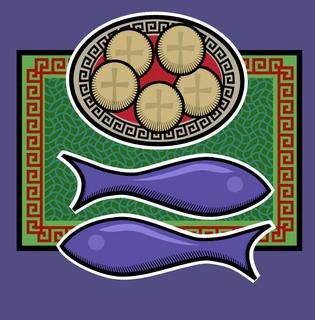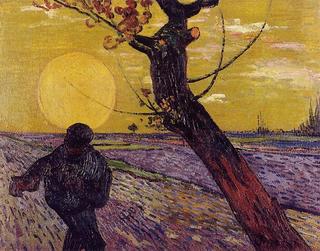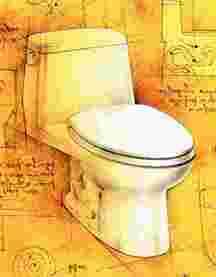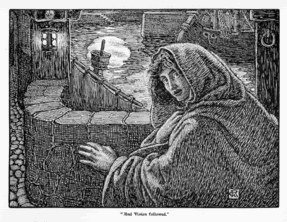There is a story of a football coach who had two quarterbacks. The first team quarterback was gifted, aggressive, and a born leader. The second string quarterback was, let us say, limited. Oh, he was athletic enough but unfortunately, he lacked a mind for strategy. The championship game was in progress, the score was tied, the home team had the ball, and the clock was ticking down. An opposing player broke through the line of scrimmage and slammed the star quarterback to the ground with such force that the signal-caller had to leave the game. Time was running out. The coach had no choice but to put in the back-up. The substitute trotted onto the field, huddled the team, and strode up to the line of scrimmage.
Surveying the opposing team, and much to everyone's surprise, he changed the play at the line. The ball was snapped, the quarterback handed it off to the half-back who busted up the middle and sped all the way into the end zone with the winning touchdown! An amazing play. Moments later, in the ecstatic dressing room, the coach grabbed his second-team quarterback by the shoulder pads and said, "Son, that was great! How did you know to call that play?"
The boy said, "Uh, well coach, it weren't easy. I got up to the line and looked across at two of the biggest players I've ever seen and I seen their numbers. One of 'em was wearing a six and the other one was wearing a seven, so I just added them numbers together and got fourteen and called number fourteen." The coach hesitated a moment and said, "But son, six and seven make 13."
The boy, quite unmoved by the correction, said, "You know what coach? If I was as smart as you, we would have lost the game." Things do not always add up the way they are supposed to, do they?
It was getting late and it was becoming obvious to the disciples that the crowd that had gathered to be healed by Jesus was getting hungry. They had counted up the numbers and decided what should be done: send them away to fend for themselves. And their reasoning made sense on a lot of levels.
Firstly, Matthew tells us that there were over 5,000 people there. And even if he was exaggerating we can still safely assume that there were still a lot of people there.
Secondly, Matthew tells us that Jesus had gone to a deserted place so we can assume that if he and the disciples took supplies for dinner with them (which they apparently did because they had five loaves of bread and two fish) they weren’t expecting to have to feed company.
Ever had company show up unexpectedly and had to scrounge for something to serve them?
Thirdly, Jesus had gone away in order to mourn the death of his cousin, John. If anyone should be feeding anyone Jesus should have been the one receiving the dinner. After all, isn’t that what people do when someone dies; they take the relatives the food, not the other way around?
The disciples were not out of line in their accounting of the situation. They just couldn’t do it and that was that. It was better to tell them to go home and get their dinner then to let them hang out and get hungry, which makes some people cranky.
Send them home, it makes the most sense.
This is a story about hunger. The people who followed Jesus were hungry. Now maybe the hunger was spiritual at first; they wanted to hear Jesus talk about God. And some of the hunger was based upon their need for healing and they wanted Jesus to lay his hands on them. But it was the disciples who noticed that the people were getting hungry for food.
I think we all understand that there are hungry people in the world. One website I found, called Food First, claims that there are at least 700 million people in this world who do not have enough to eat and that 12 million children die each year because of it. On their homepage it lists 12 myths of hunger. Myth #1 is:
Not Enough Food to Go Around
Reality: Abundance, not scarcity, best describes the world's food supply. Enough wheat, rice and other grains are produced to provide every human being with 3,500 calories a day. That doesn't even count many other commonly eaten foods - vegetables, beans, nuts, root crops, fruits, grass-fed meats, and fish. Enough food is available to provide at least 4.3 pounds of food per person a day worldwide: two and half pounds of grain, beans and nuts, about a pound of fruits and vegetables, and nearly another pound of meat, milk and eggs-enough to make most people fat! The problem is that many people are too poor to buy readily available food. Even most "hungry countries" have enough food for all their people right now. Many are net exporters of food and other agricultural products.
The disciples had five loaves of bread and two fish and Jesus told them to feed over 5,000 people with it.
“They need not go away; you give them something to eat.”
And it sounds absurd, doesn’t it? Absurd that so many could be fed with so little, absurd that Jesus would even suggest such a thing… couldn’t he count?
700 million people is a lot of people to invite over for dinner and yet, I don’t think I would be doing my job today if I didn’t suggest it. And I know that this is a generous congregation because I have felt your generosity in my life and in how you have worked to support and care for me as your pastor.
So how can we feed 700 million people?
And you should all understand that I get to this point in my sermon writing and wonder why I ask such questions because now I have to come up with an answer that makes sense. And maybe that’s the problem exactly; that I want 1+1 to equal 2, when I know that isn’t how God does math.
Jesus took 5 loaves of bread and 2 fish and fed 5,000 plus people with it and had left-overs!

So, what can we do? How can we feed 700 million people?
And you are going to be surprised that my first answer is not to pray. Oh we should pray, praying is good, we need to pray. But the real answer to hunger is not that God would provide more, because we have enough.
The answer is that we need to share what we have with those that don’t have. Jesus told the disciples to gather what they had and then he prayed.
So let’s do it. Let’s have 700 million people over for dinner. Let’s save 12 million children from dying each year. I expect it won’t be easy, it will take lots of planning, lots of work, and lots of letting go, but don’t think for one moment that we don’t have the resources.
And that’s the good news. God has already given us what we need to do it. We have been given an abundant life in Christ Jesus.
So, are you ready to get cooking?
Amen.



